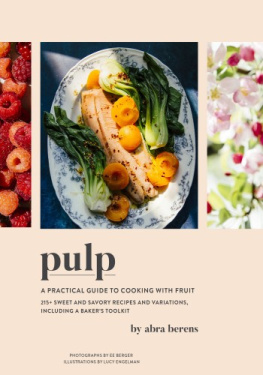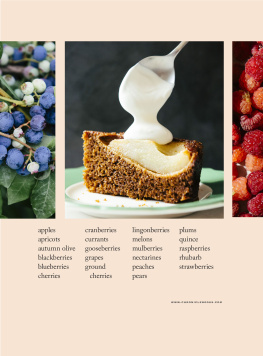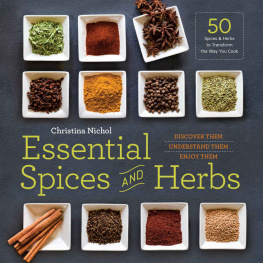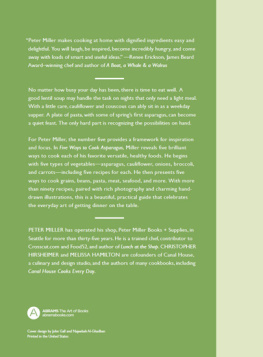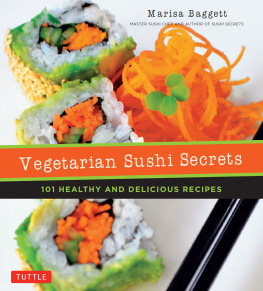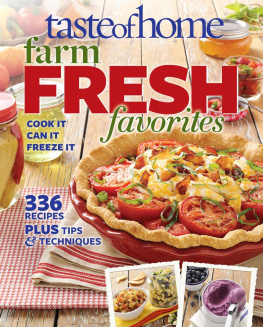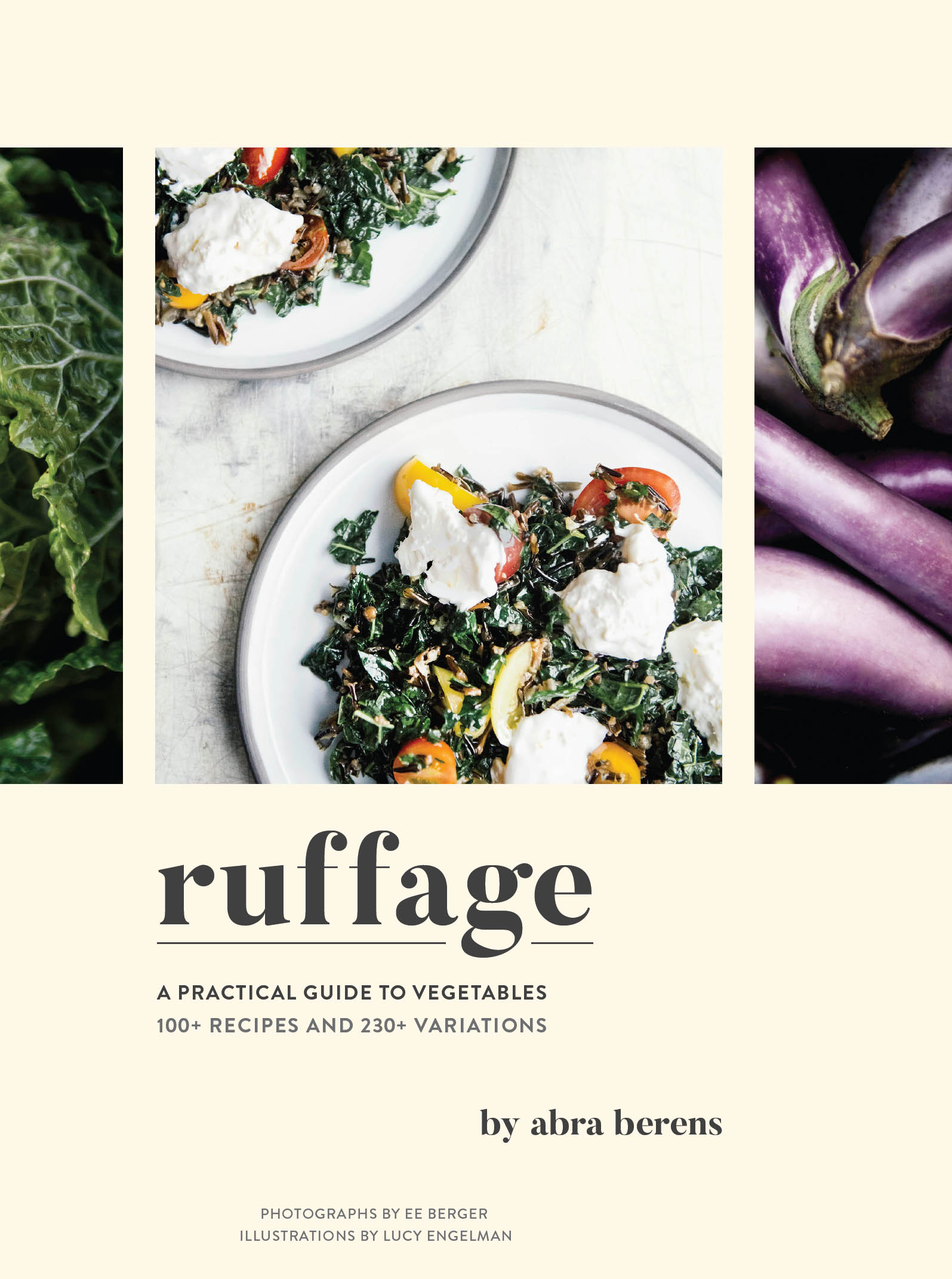




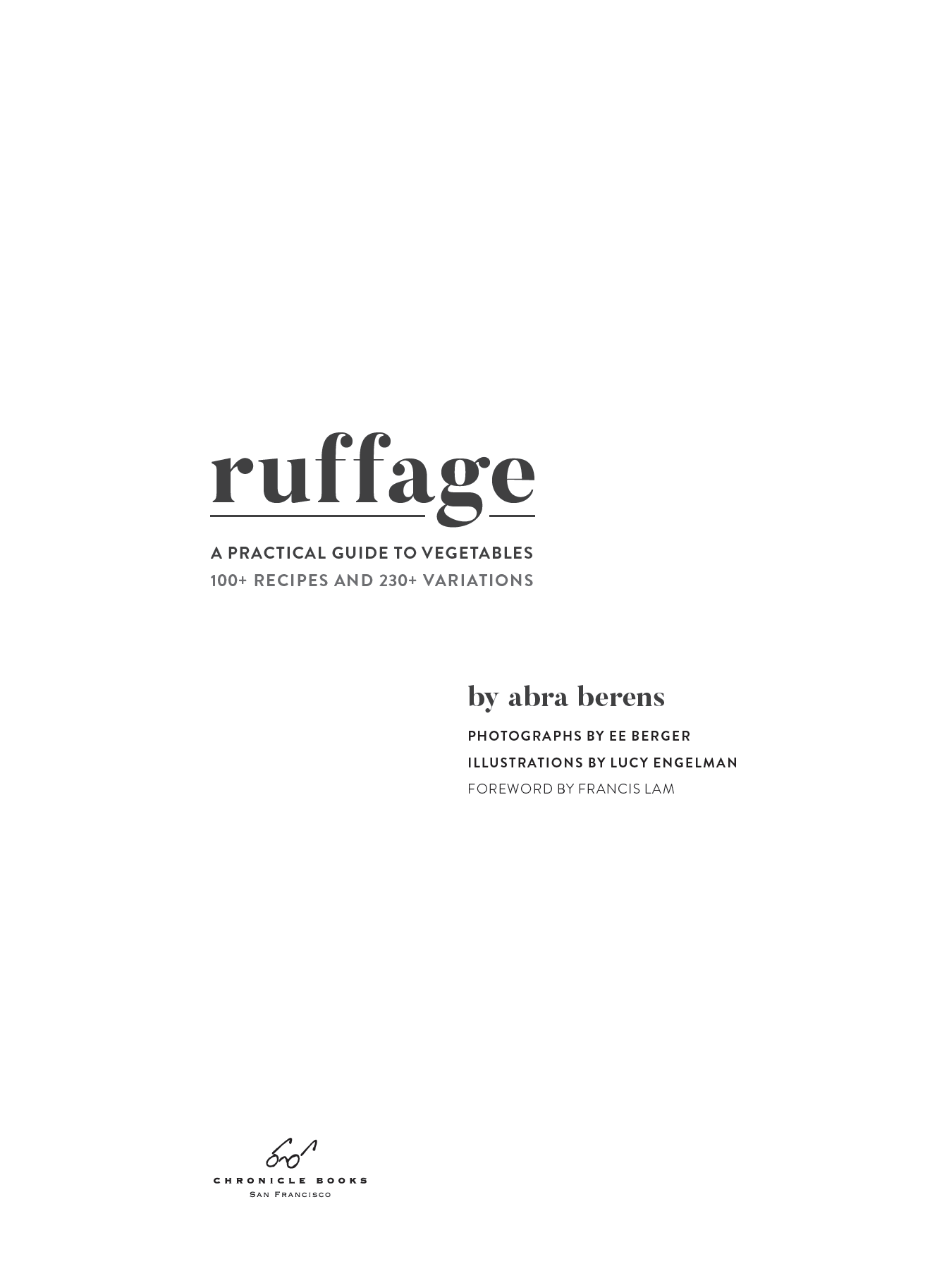
Text copyright 2019 by Abra Berens.
Photographs copyright 2019 by EE Berger.
Illustrations copyright 2019 by Lucy Engelman.
All rights reserved. No part of this book may be reproduced in any form without written permission from the publisher.
Library of Congress Cataloging-in-Publication Data available.
ISBN 978-1-4521-6937-8 (epub, mobi)
ISBN 978-1-4521-6932-3 (hardcover)
Prop styling by Lee Berens and Mollie Hayward
Food styling by Mollie Hayward
Design by Sara Schneider
Typesetting by Frank Brayton
Colavita is a registered trademark of Colavita S.p.A. J.Q. Dickenson Salt-Works is a registered trademark of J.Q. Dickinson Salt-Works, LLC. Maldon is a registered trademark of The Maldon Crystal Salt Company Limited. McDonalds is a registered trademark of McDonalds Corporation.
Microplane is a registered trademark of Grace Manufacturing, Inc. Morton is a registered trademark of Morton Salt, Inc. Nutella is a registered trademark of Ferrero S.p.A. Corporation. Styrofoam is a registered trademark of The Dow Chemical Company.
Chronicle books and gifts are available at special quantity discounts to corporations, professional associations, literacy programs, and other organizations. For details and discount information, please contact our premiums department at or at 1-800-759-0190.
Chronicle Books LLC
680 Second Street
San Francisco, California 94107
www.chroniclebooks.com
foreword
One of the first things I remember Abra Berens cooking was a mistake. It was a post-college dinner party at a friends apartment. Shed spent some time in professional kitchens, and so she was welcomed like an ambassador from Restolandia, her moves at the stove studied and admired. As she braised pork in milk, she told everyone that by the time it was done, the milk would have reduced and caramelized into a thick, ribbony, savory dulce de leche. It didnt happen. The sauce remained stubbornly fluid, separated, in fact. We were promised magic and ended up with meat, curds, and whey. Were she perfectionist, ego-driven, the kind of showy cook who cooks at her guests more than for them, she would have been mortified. Happily, Abra is none of those things, and she happily served the different-yet-delicious dish to her friends. (Everyone loved it.)
Fast forward 10 or 12 years, and Im having lunch at the restaurant she was running, an unassuming counter inside a produce market. I confess I cant remember everything on the menu, but I do remember that the food was delicious, real, mostly vegetables; there were eggs and, I think, a baked potatowith a mushroom rag and all kinds of delicious things on top that made it somehow transcend the profoundly plain fact of its existence as a baked potato.
Anyway, I ordered far too much food because the cooking was so damned good. I remember that the sauces were bright and saucy, and the beans creamy and beany, but most of all I remember the feeling of it. That this was cooking that was simple because it was confident. You hear about chefs having respect for their ingredients all the time, but usually thats just code for I can get really expensive stuff that you cant. Abras cooking is influenced by her time as a farmer, which means that she has an instinct and techniques for what to do with tomatoes that are perfect, heavy orbs of juice, along with the ones that got picked a little hard by mistake. Hers is a smart way of cooking, a curious, thoughtful way of cooking, but most of all, a cooking of good spirit. At that lunch, everything was made flawlessly, but there was still a clear, direct, shining, smiling line between the spirit of woman who made this food and the spirit of the woman who gladly served her closest friends a big pile of meat that looked absolutely nothing like the way she intended.
So here is this book. Its full of that good spirit and those techniques. Its a cookbook thats an idea book, a learning book, a live-with-you-in-the-kitchen book. Ive dog-eared so many pages: creamed mozzarella, charred green beans and fat chunks of tomato drizzled with tuna mayo, mustard braised potatoes with chicken thighs. I mentioned the creamed mozzarella, right?
I was afraid, getting ready to write this foreword, that I would be hamstrung because I get to know Abra as a person, and that I would infer all kinds of magical things from the book because of that. But Im happy to say that, in these pages, you will also get to know her, and the things she knows. Shes a dirt-nailed philosopher and a cold-beer storyteller. Youll learn about the life and life-giving properties of plants the way a farmer sees it. Youll never see a cucumber the same way again. Youll start using the phrase science feels. Its heartrending, beautiful, sly, funny, and dear. One page feels like a prose poem and the next feels like your bestie slipping you notes in school.
But maybe I am overstating it. (Im not.) Maybe, in the end, this book is a brassica. Theres a great line in it:... it is cabbage I come home to. She is a reliable and hard-working friend. For all the cooking smarts it contains, all the knowledge, stories, ideas, warmth, and good spirit, let this book be your cabbage.
FRANCIS LAM
This, like everything, is for Erik.
Should we do the dishes?
Lets go to bed.
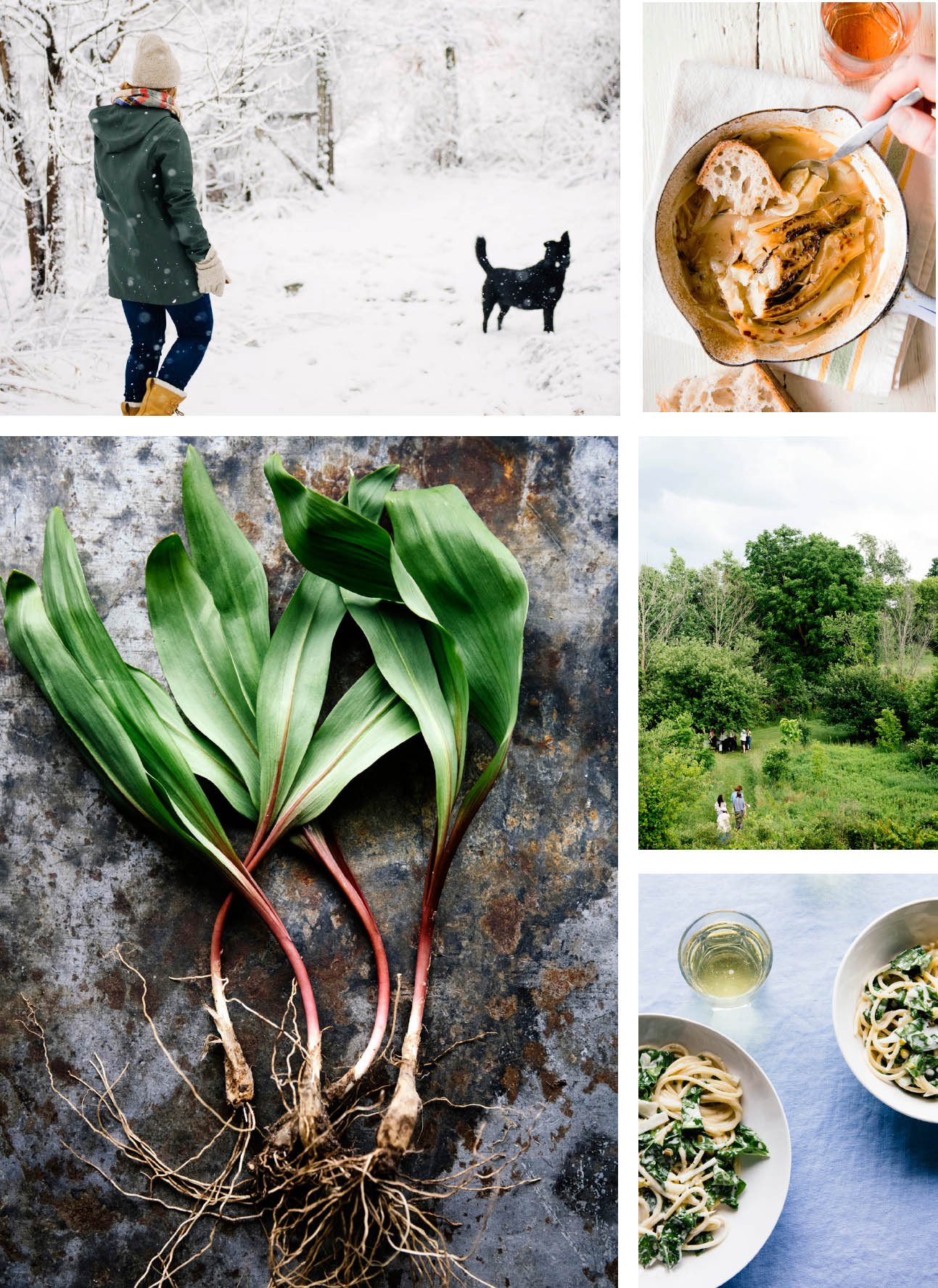
introduction
In 2009, my friend Jess Piskor and I started Bare Knuckle Farm in Northport, Michigan. I was a young cook, only a year and a half out of cookery school, but knew I wanted to make food that was representative of a place. Seemed like the best place to start was by growing it. Jesss family graciously let us take up residence in a frost valley between two of their cherry orchards. We gave it a go.
At the end of my first year of farming, I was as poor as Ive ever been, having plunged my savings into starting a business. I had two weeks before returning to Chicago, to a job that paid me in greenbacks instead of leafy greens. Trying to save my pennies, I was eating the last of our farms vegetables that hadnt sold at the final market. There were carrots still in the ground to overwinter and harvest in the spring. The kale plants, which we had chopped down because they were covered in aphids, had unfurled little baby leaves, all tender and green. The chickens had been relocated to another farm for the winter, but I still had eighteen eggs from their last few layings.
Every day, I went out to the farm and pulled a stash of carrots from the ground. I shivered at night, but the carrots only got sweeter with every passing frost. The tiny kale greens sprouted anew each day, photosynthesizing every faded hour of fall sunlight. The eggs were almost obscenely orange-yolked. I couldnt have bought food in the store of this quality even if I had had dollars instead of pennies. I was broke as hell but was eating some of the best meals of my life.
Next page

